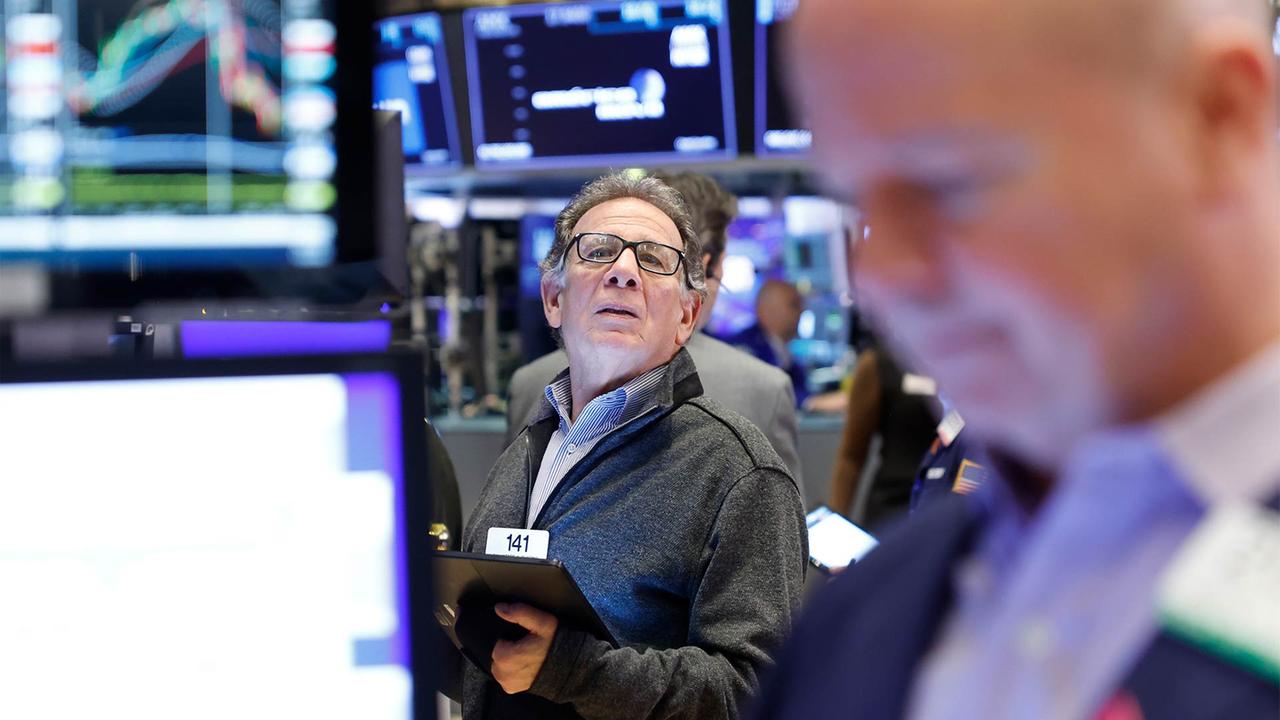market report
The stubborn US inflation thwarted the interest rate optimists' plans in the middle of the week. While the DAX managed to stay positive, the signs in New York remained deeply red.
It wasn't a good day for the optimists on the stock market. Inflation in the USA remains more stubborn than many people thought. At 3.5 percent in March after 3.2 percent in February, inflation was higher than expected. Economists surveyed by the Reuters news agency had expected 3.4 percent. The core inflation rate remained at its high level of 3.8 percent.
In view of this disappointment, Wall Street started the day weakly and was hardly able to contain the loss over the course of the day. The Dow Jones standard values lost 1.09 percent of their value at the end of trading and closed at their lowest level in eight weeks.
Technology stocks, which are more interest-sensitive due to their tendentially higher debt ratio, were also under significant pressure. The Nasdaq 100 ended trading 0.87 percent lower.
Continued high US inflation suggests that market interest rate expectations were overly optimistic. A turnaround in interest rates as early as June is becoming increasingly unlikely. “The data suggests that the US Federal Reserve is taking its time with interest rate cuts beyond the middle of the year, especially as the economy continues to expand strongly,” commented Commerzbank experts Bernd Weidensteiner and Christoph Balz. Just yesterday, another Fed banker, Raphael Bostic, the head of the regional central bank in Atlanta, spoke out and warned that the US central bank might forego interest rate cuts altogether this year.
The “Fed Minutes”, the minutes of the last meeting on March 20th, published in the evening, continued to hold out the prospect of interest rate cuts this year. “Almost all” members believe it would be appropriate to begin cutting rates “at some point” this year, it said. The decline in inflation rates is likely to continue in general. However, it is expected that this process will proceed unevenly. The inflation data for the past few months have been “disappointing”.
On the German stock market, the DAX had risen by up to 0.9 percent before the inflation data was published. However, the current data at 2:30 p.m. caught investors off on the wrong foot: the leading German index slipped significantly and lost 0.5 percent at its peak, which meant that it temporarily slipped below the 18,000 point mark. At the end of trading, the DAX was able to climb back up by 0.1 percent. However, it had already lost a significant 1.3 percent on Tuesday.
No interest rate cuts are expected at tomorrow's interest rate meeting at the European Central Bank (ECB). There had been no changes in the last four meetings. Observers believe that a first step downwards is still possible at the following meeting in June. The interest rate at which commercial banks can borrow money from the ECB is currently 4.5 percent, which is the highest level since 2001.
As expected, the prospect of potentially higher US interest rates strengthened the dollar and weakened commodity prices. The euro lost 1.1 percent to $1.0740 by the evening. A troy ounce of gold cost $2,329 late in the evening, 1.1 percent less. The yellow precious metal has moved away from its recent record high of $2,365.
Oil prices also fell after the inflation data, but prices rose again in the evening. Concerns that a possible expansion of the war in the Middle East could threaten oil supplies returned to the market. A barrel (159 liters) of North Sea Brent cost $90.50 late in the evening, 1.1 percent more than yesterday. However, a surprisingly strong increase in US inventories slowed gains. US oil reserves increased by 5.8 million to 457.3 million barrels compared to the previous week.
On balance, Airbus shares in the DAX were barely changed. The world's largest aircraft manufacturer delivered 63 commercial aircraft in March, more than twice as many as its US rival Boeing. In the first three months of the year, 142 Airbus jets found their way to their buyers. This corresponds to around 18 percent of the approximately 800 aircraft that Airbus has set itself the target for the year as a whole.
Bottlenecks in the supply chain and model changes caused sales in the Mercedes-Benz passenger car division to fall significantly in the first quarter. From January to March, the brand with the star sold 463,000 vehicles, eight percent less than in the same period last year. In the case of vans, however, an increase of seven percent was achieved with 105,400 vehicles.
The Munich car manufacturer BMW sold around 595,000 cars in the first quarter, 1.1 percent more than a year ago. The growth drivers were fully electric vehicles as well as high-powered and luxury cars. The number of battery-powered vehicles (BEVs) sold rose by almost 28 percent, while sales of cars in the upper price segment increased by almost 22 percent.
The Aurubis share was the biggest price winner in the MDAX. Investors followed a buy recommendation from the private bank Metzler. Higher metal prices in the coming months could lead to the Hamburg copper smelter raising its outlook, argued analyst Thomas Schulte-Vorwick.
In contrast, Aixtron shares came under pressure. The French bank Exane BNP Paribas has lowered its rating for the specialist equipment manufacturer's shares by two notches to “underperform”. Last year was probably the high point for deliveries of SiC manufacturing systems. The MDAX company is now threatened with loss of market share in this business area.
Investors were relieved by Philips' agreement with the US government to sell new sleep apnea devices. The medical technology group's stocks rose by around seven percent in Amsterdam. The agreement provides Philips with a precise roadmap to meet relevant regulatory requirements, the US Food and Drug Administration (FDA) said.
Apple manufactured $14 billion worth of iPhones in India last year, according to an agency report. Meanwhile, 14 percent of the box office hit, or about one in seven iPhones, comes from the subcontinent, as the Bloomberg news agency reported, citing people familiar with the matter.
Vehicles from the robotaxi company Cruise are returning to the road around six months after a serious accident. The GM subsidiary's cars will initially only be driven by humans in order to update map data and collect fresh information about the surrounding area.
Boeing has to defend itself against new allegations about the quality of its aircraft. The company rejected criticism from an employee that some 787 “Dreamliner” machines could have a shortened service life because the company had taken technical “shortcuts” to speed up production.
Intel wants to fight against Nvidia's dominance in technology for applications with artificial intelligence (AI) with a new chip. The new chip, called Gaudi 3, delivers better performance with less power consumption than Nvidia's current H100 systems, Intel promised yesterday.




